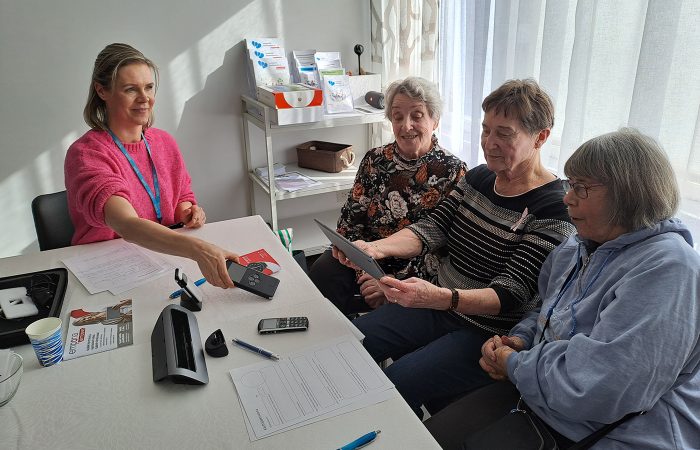We Research: Utilization of the Data Lake for Assessing the Impact of PORI75 Health Screening
The project named "Data Lake Innovation Testbed for Future Hospitals" (DataLake) aimed to establish a collaboration model for R&D activities (research, development, and innovation) and an operating model for the utilization of a data lake. DataLake is Finland's premier ecosystem where a Testbed connects central and university hospitals, universities of applied sciences and universities, data lake providers, supercomputer platforms (CSC, national science IT center), and growth and startup companies for the first time.
The utilization of valuable health data for research and development was facilitated and streamlined when the law on secondary use of social and health information (552/2019) was enacted in 2019. Secondary use means that customer and registry data generated in social and health care operations are used for purposes other than their primary intended purpose.

The DataLake project encompasses various studies, but this article focuses on the research-based utilization of information collected alongside the clinical activity of the health screening aimed at 75-year-olds in Pori Security Center (PORI75). The data sources for the study were the patient information system database of basic security, manually recorded research form results database, and the data lake maintained by Auria Information Services regarding blood tests taken in the special health care business's laboratories. Several international research papers will be published from the collected data, of which the efficacy of PORI75 health screening in healthcare is currently being researched.
The study began when the Satakunta Hospital District granted temporary permission for the certain research team members to extract data from the Satakunta Hospital District's database, following guidelines provided by Auria Information Services. An ethical committee review was applied for the PORI75 research project. As per the reviewed research plan, those who underwent the health screening were asked for personal consent to use the health screening data for research purposes, and permission to extract data related to health and service use from information systems. In addition, permission was applied from the organization for secondary use of health data.
Between 2020-2021, all 75-year-olds living at home from the former Pori Security Center and its cooperation areas were invited to the health screening. The health screening included 30 validated health indicators, divided into three parts: 1) completed at home by the resident (9 indicators), 2) measurements made by the public health nurse (14 indicators), and 3) laboratory tests (7 indicators). Nurses were trained to ensure consistent and high-quality measurements. With the customer's consent, emergency visits to the Satasairaala by residents who participated in the health screening were extracted from the Auria data lake. Emergency visits were monitored for 11 months to two years from the date of participation in the health screening. The number of emergency visits by those who participated in the health screening will be compared to a control group, i.e., those who did not participate, and to the number of emergency visits before the health screening. A more detailed process of the health screening is described in the "Read more" reference at the end of this section.
Many health risks were identified among 75-year-olds living at home, which are aimed to be treated by healthcare professionals, in order to reduce the number of unforeseen emergency visits. About half of the participants were directed to healthcare professionals for follow-up studies. The data collected from health indicators should be recorded in the patient information system efficiently so that collected data is beneficial and the use of data can be automated in the future.
Did you know?
- In several countries, including Finland, the growing number of older adults poses challenges to social and health services.
- In Satakunta, the proportion of older adults in the population is higher and is growing faster than the national average in Finland.
- In 2019, Pori's Security Center (now the Satakunta Wellbeing County) developed a comprehensive health screening procedure for 75-year-olds living at home, aiming to identify health risks and reduce unpredictable use of health services.
- The research aims to enhance the healthcare staff's ability to monitor common diseases and to streamline and target healthcare resources and services into an increasingly coordinated whole.
- This leads to an improvement in individual quality of life and a reduction in the strain on healthcare at the population level.


